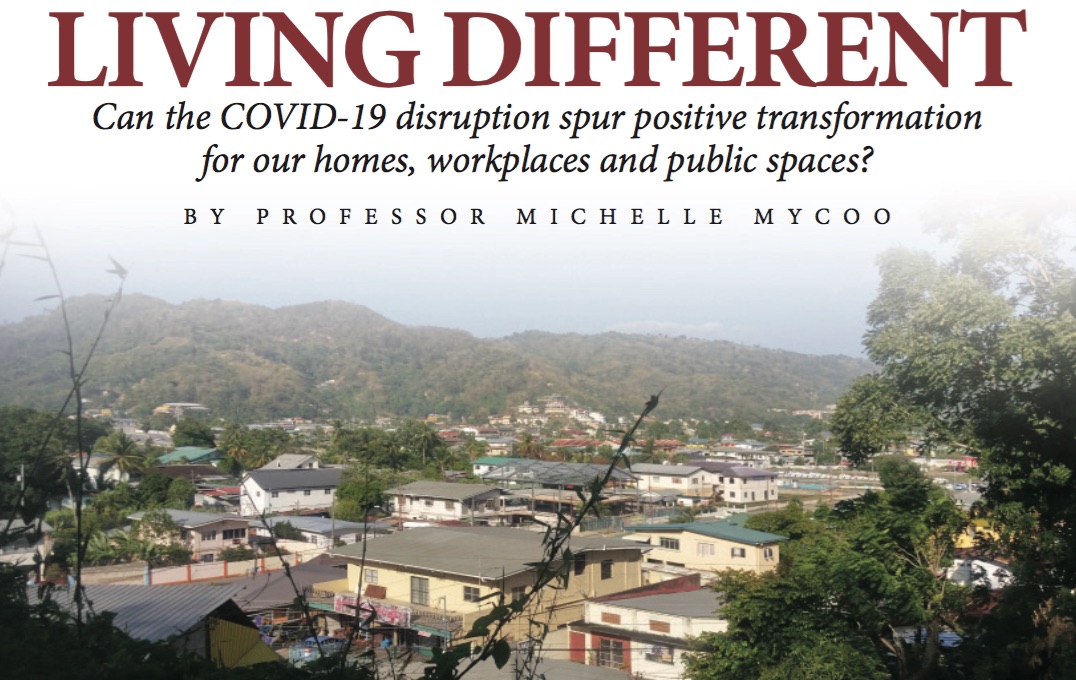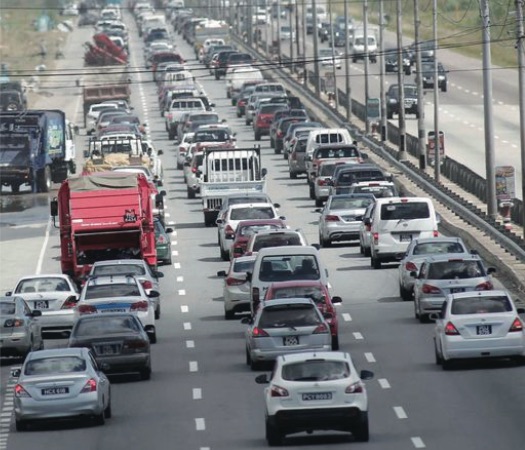
When the world went into lockdown in March 2020, nobody imagined that the COVID-19 pandemic would cause unprecedented disruption to our lives. Yet, throughout human history, disruption presents opportunities for transformation. Before Caribbean societies embark on transformative action, however, we must have a clear diagnosis of the impacts of the pandemic.
COVID-19 protocols for practicing social distancing are challenging how people share space in their homes, offices, schools and public places. The virus is easily spread in overcrowded living conditions typically associated in the Caribbean with high density, low-income housing developments and informal/squatter settlements where self-quarantining is difficult. Access to water for good hygiene practices is problematic where irregular supply creates additional stress which contributes to poor health. Further, psychological impacts associated with crowded housing—in addition to the lack of access to indoor and outdoor recreational space such as bars, beaches, parks and playgrounds—are likely to be high and will need to be studied. Long-term interventions focusing on reviewing current approaches to housing, land and basic services are crucial, as they could significantly shape the success or failure of urban and rural areas to respond to extreme events and future post-disaster recovery. Urban and regional planners and architects have a great opportunity to revisit how settlements and houses for marginalised communities are planned and designed to lessen crowding in living quarters. Public space is integral to human wellbeing, so a more concerted effort is needed to plan, design and manage these spaces to encourage safe use by women, children and the elderly. Such action is especially necessary given that the number of reported domestic violence cases has grown in the Caribbean during the pandemic. This may be linked to confinement measures, overcrowded living conditions, the lack of personal space, and limited opportunities to retreat to safe space. It is an opportune time for more effective management of public space at the local level.
In this regard, the MSc programme in Urban and Regional Planning in the Department of Geomatics Engineering and Land Management at the St Augustine Campus is playing a vital part in addressing these issues through capacity building and knowledge transfer to young, aspiring professional planners. Its role in the vanguard of transforming land use planning and design to tackle the consequences of COVID-19 is paramount.

Over several decades, traffic congestion has been growing in Caribbean countries such as Jamaica and Trinidad. Transportation studies have revealed that in the case of Trinidad, commuters spent an average of three hours per day in traffic. COVID-19 safety measures included a stay- at-home directive which resulted in people working from home and home-schooling for children. Traffic congestion was non-existent for the first three months of the lockdown. Operating in a digital world based from home meant less gasoline consumption, a reduction in time spent on congested roadways, less stress associated with commuting, perhaps a more productive workforce, and environmental and health benefits such as cleaner air resulting from less vehicular exhausts.
Transportation engineers have long struggled with finding ways to minimise traffic congestion. As small islands with limited land, the building of highways has consumed a considerable amount of space. COVID-19 presents a golden opportunity for policymakers to explore a range of possibilities to reduce traffic congestion, using for example a work-from-home option if workers do not require frequent face-to-face interaction or a compressed work week allowing persons to work in their offices on a roster basis. Moreover, an innovative, bolder vision for the transportation sector must be merged with both land use planning and economic planning. This calls for interdisciplinary research and policy formulation.

The pandemic has brought major economic disruption to Caribbean economies, more so because of their integration into the global economy. Small islands are quite vulnerable to external shocks because they are open economies. Undoubtedly, COVID-19 has exacerbated the poverty trap for the Caribbean’s poor and marginalised. Households faced with the rising cost of food items and consumer durables have felt inflationary impacts. Small businesses, including informal vendors, have been severely impacted and many have closed their operations.
The cost of sanitising offices and shops is high and burdensome to enterprises. Food security is threatened in islands that rely heavily on imported food such as The Bahamas. The real estate market has been significantly affected with several properties now unoccupied. Reduced personal savings and remittances from persons living abroad, especially in the USA, UK and Canada, have exacerbated poverty among dependent persons. With increased government borrowing, higher deficits and reduced social safety nets, crime is already rising in some countries. Delayed investments in key infrastructure upgrading will have negative outcomes.
However, many positive outcomes have been associated with COVID-19. Some businesses have already become more innovative to survive the pandemic. For example, rapid transformation in conducting business using digital technology has led to economic efficiency and cost cutting in some business operations such as banking and insurance. During the early phases of the lockdown, internet providers stepped up in the fight against the virus. They offered free Wi-Fi to university students and are now making available free Wi-Fi hotspots for students at all levels.
The sector which can help Caribbean countries reduce their high food import bill, save much needed foreign exchange, boost employment opportunities and improve food security, is agriculture. COVID-19 gives countries like Trinidad and Tobago another chance at resuscitating this neglected sector with the potential for high economic returns. In this context, the role of urban and regional planning is critical in zoning agricultural land so as to reduce its conversion to housing and infrastructure.
Caribbean islands must now refocus on forging new transformative pathways for sustainable development. An optimistic outlook is an essential ingredient in moving forward. Disruption is good for a societal reset. Policy grounded in science and sound interdisciplinary research is pivotal to creating a Caribbean capable of innovation and resilience. The University of the West Indies is a major stakeholder in setting the pace and vision for transformation.